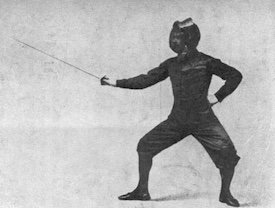There’s zero evidence to support that. Your statement was very clear, unambiguous and either ignorant of facts or intellectually dishonest - you confirm which below…
Nonsense. You stated my assertions suggested to you I had little experience of tube amplifiers which is obviously false, based on the evidence that I’ve been a professional audio engineer for about 30 years and have worked with numerous tube amplifiers of various different types, as well as worked quite a bit with software emulations of them. As I have plenty of evidence that I have significant experience of tube amplifiers (probably much more experience than you) and your assertion was false, therefore your reasoning was fallacious. How does that logic escape you?
That’s correct. There are other elements too of course, but harmonic distortion is a significant reason. Bravo, a far more nuanced perspective. Although that’s quite a pivot from your earlier position.
If that’s what you think, then you need to re-read what I stated and gain a better understanding of my earlier position, which is the same as my current position. How is harmonic distortion “
a signifiant reason” if it’s inaudible?
So wasn’t ignorance then.
How is believing false marketing not ignorance?
Yes, tech has advanced.
But the essential evaluation of how good a mix is has not.
Sure there are new tools to look into and tweak the technical aspects of a recording. But at the end of the day the criterion that overwhelms all others is that the mix subjectively sounds as awesome as possible.
But that’s worthless because engineers/producers have always tried to create “
mixes that subjectively sound as awesome as possible”, even when there were no mixing tools/tech besides just moving the musicians around in front of a horn when recording early wax cylinders. Obviously the evaluation “
of how good a mix is” has changed significantly over the years in response to massive advances in mixing technology/tools. And incidentally the new tools available, even going back to the mid 1970’s, are NOT limited to “
new tools to look into and tweak the technical aspects of a recording”, the new tools can hugely alter pretty much every aspect of the composition and musicality as well. A trend that started in the 1960’s of which Geoff Emerick was a pioneer and whom you ironically cited as your tutor!
Every form of recording and reproduction, digital or analog, does a substantially flawed job of capturing sound. It's just bad in its own different way.
Huh? Digital does indeed do “
a substantially flawed job of capturing sound” in fact an infinitely flawed job of capturing sound, because it cannot capture sound, it can only “capture” (convert and store/transmit) analogue signals! And how is achieving that task audibly perfectly “
just bad”? You proclaim to be an industry professional, even to have been tutored by one of the great engineers, and yet you don’t even seem to know the basics of what digital audio does or it’s accuracy/fidelity.
Wow, really? Seems like another really ignorant comment. Isn’t this a “science” forum?
Yes, it is a “science” based discussion forum, it’s not a forum of what assertions “seem” or “suggest to you” based on your own lack of knowledge and experience!
If they care about utmost fidelity & measurements then logically you won’t find a record player either, but are you really going to assert musicians don’t listen to vinyl anymore lol it should just be a common sense thing with no controversy.
That’s a strawman argument and how is that indicative of this being a “science forum”? Musicians do indeed typically care about fidelity although not often about measurements and therefore logically musicians do sometimes have record players, as a good record player/setup is capable of high fidelity. However, as digital is both cheaper and higher fidelity, many/most musicians indeed do not listen to vinyl anymore. The proportion might have increased somewhat in recent years, in line with the fashion/trend for vinyl but this is a strawman argument as a tube amp is not required for vinyl playback.
It should indeed “
be a common sense thing with no controversy” that relatively few musicians use outdated, superseded/inferior tube technology, as should not employing strawman arguments in a science discussion forum, but in your case, apparently not!
G






















